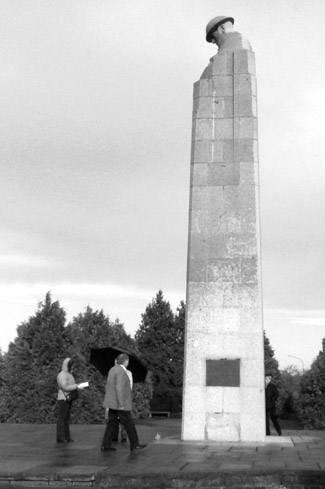Nov
2
By Jim Gerwing
When we honour the veterans and recall the ultimate sacrifice of those who gave their lives in war we might not want to visit the truth surrounding the horrors of war. That is particularly true of the trench warfare of the Great European War, usually called the First World War.
 |
|
Located at Vancouver Corner near St. Julien, Belgium, stands a 35-foot memorial known as “the Brooding Canadian.” It depicts a Canadian soldier with bowed head and hands resting on his rifle butt. It commemorates the contribution of the Canadian First Division in the battle for Ypres and the first occurrence where chlorine gas was used as a weapon of war. The plaque on the base reads: |
When the German attacks stalled in the attempt to capture Paris, a vast system of trenches gradually developed from the North Sea to Switzerland. The lines swayed back and forth as both sides attempted repeatedly to achieve a breakthrough. Soldiers were ordered to go “over the top” following heavy bombardment of enemy positions, only to meet withering machine-gun fire, forcing them to retreat, leaving the field strewn with dead comrades.
The Belgian city of Ypres faced numerous attacks. Surrounded on three sides by German trenches, it was a significant bulge in the trench lines. A German victory there would have been disastrous to the allies, since it was a vital link between the front lines and the English Channel.
French troops, mostly Algerians, held the north sector and the English the centre and south. After repeated failure to break through, the Germans decided for the first time to use poison gas to drive their way through. The heavy yellow-green chlorine gas drifted down the northern trenches, creating a three- kilometre gap when the French lines, unprepared for this new threat, gave way.
It was into this gap that untested Canadian soldiers rushed to save Ypres. Without gas masks, they suffered unbelievable losses, but they held on, a feat of courage and tenacity which earned the Canadian forces a reputation they have not relinquished.
It was during this battle that John McCrae penned his immortal lines “In Flanders Fields.” This poem has inspired generations of people all over the world to use poppies as a symbol of remembrance.
